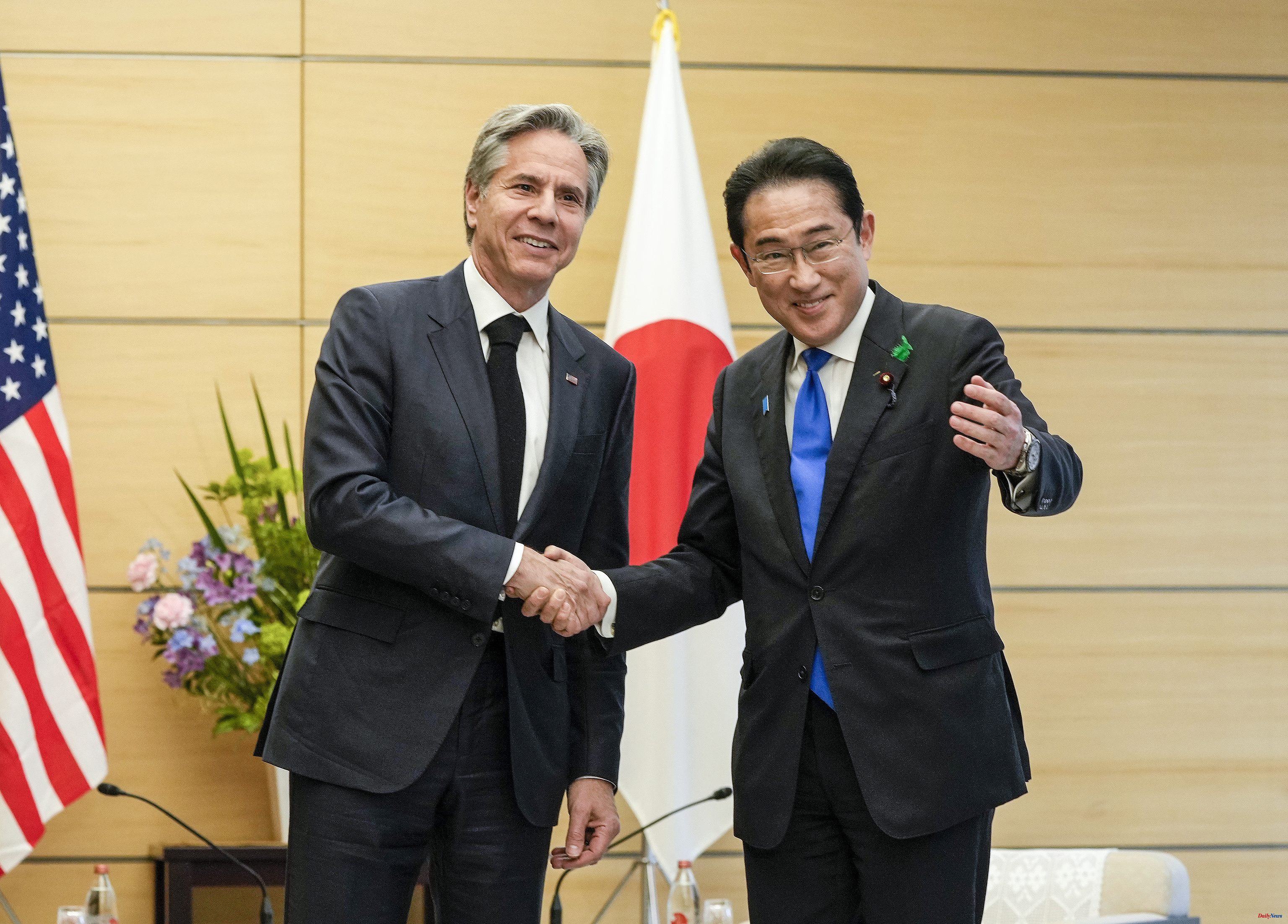Little more seasoning could be added to the meeting of the diplomatic representatives of the seven most industrialized countries on the planet. From his Japanese refuge in Karuizawa, only rough water could be glimpsed around him.
China executing large military exercises that simulated, with live fire, an invasion of Taiwan; North Korea launching a new solid-fueled ICBM; Russia strengthening military ties with its Chinese neighbors as it continues its war in Ukraine; Europe involved in a dilemma over its relationship with Beijing; Brazil opening the door of the Global South to a new multipolar order.
Nor should we forget the hectic week in the host country of the meeting, Japan, where only the attack on Saturday with a homemade bomb against Prime Minister Fumio Kishida, who, taking advantage of international attention, does not stop invoking his mantra that "Ukraine today could be East Asia tomorrow".
The G7 foreign ministers have spent the last three days in Karuizawa, a mountainous and heavily touristed spot in central Japan, deliberating on all these issues, with the challenges of Beijing and Moscow at the forefront. This meeting, which ended with the promise of a "united front" against China's threats to Taiwan and Russia's invasion of Ukraine, was the appetizer for the important leaders' summit to be held next May in the city of Hiroshima. .
The foreign ministers of Japan, Britain, Canada, France, Germany, Italy and the United States agreed on Tuesday that maintaining unity was "extremely important" to address the various challenges they face. The European Union was also present at the meeting, represented by the veteran Cordovan diplomat Enrique Mora, number 2 of the head of foreign policy, Josep Borrell, who has been absent after testing positive for Covid.
"The strength of solidarity among the G7 foreign ministers is at a level never seen before," Japanese Foreign Minister Yoshimasa Hayashi said at the end of the meeting. In the joint statement, the group reiterated its commitment to support Ukraine "for as long as it takes." On the "critical security situation" in Taiwan, they called on Beijing to act as a responsible member of the international community.
Some comments that come after the French president, Emmanuel Macron, distanced himself from the line followed in recent months by the EU by assuring that Europe should not be "trapped in crises that are not ours", in reference to Taiwan, and that the bloc should pursue a strategy independent of both Washington and Beijing.
However, from Karuizawa, the group's statement, wanting to move unity in the face of Beijing's recent assertiveness in the region, urged the second world power to "refrain from threats, coercion, intimidation or use of force." A senior US official already told journalists present on Monday that all the G7 ministers agree on the need to deal with any "coercion" by the Chinese army in the Taiwan Strait. The same thing was remarked at the end of the meeting by the Secretary of State, Antony Blinken.
"On Taiwan, there is clear unanimity in the approach we are taking," the American said. Blinken, before landing in Japan, made a brief stop in Vietnam seeking to strengthen ties with this Southeast Asian country, also in conflict with China over several maritime disputes.
"For the first time as the G7, we signaled in a declaration our commitment to an open, free and rules-based international order, and our strong objection to unilateral attempts to change the status quo anywhere in the world," said Hayashi of Japan.
In another warning addressed to China, although without naming it, the foreign ministers' statement stressed that there will be "serious costs" for those countries that provide military assistance to Russia or undermine the sanctions imposed on Moscow. The G7 envoys also charged against "Russia's irresponsible nuclear rhetoric and its threat to deploy nuclear weapons in Belarus are unacceptable. Any use of chemical, biological or nuclear weapons in Ukraine will have serious consequences." Blinken, in his speech after the summit, pointed out that Moscow "is losing its attempt to conquer" and that the G7, in addition to the countries related to the group, will continue on the side of Ukraine, which it will support when it comes to "reclaiming its territory".
The group promised to intensify, in a coordinated manner, the sanctions against the Putin regime. "There can be no impunity for war crimes and other atrocities such as Russia's attacks on civilians and critical civilian infrastructure," they said.
According to the criteria of The Trust Project












